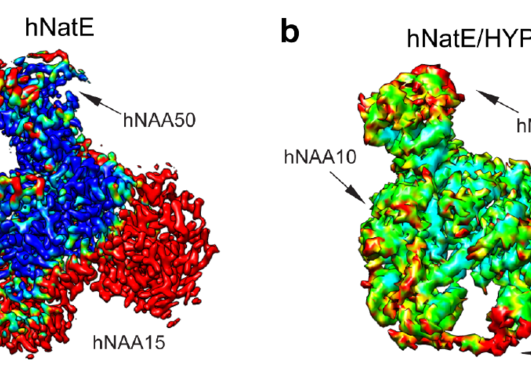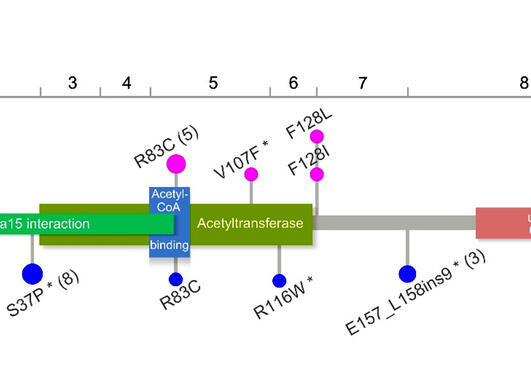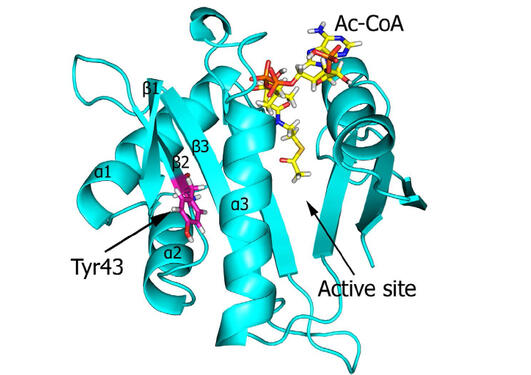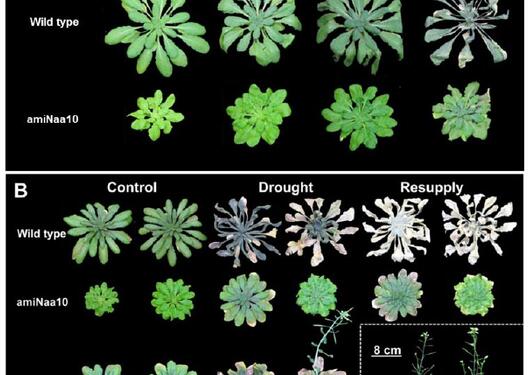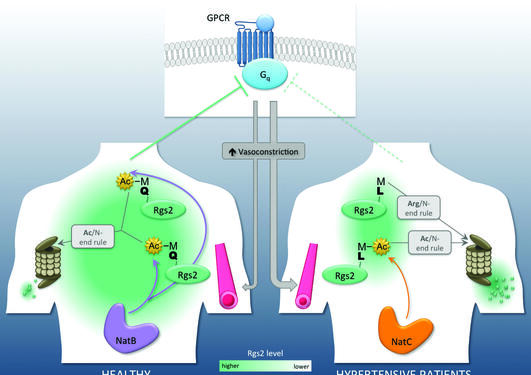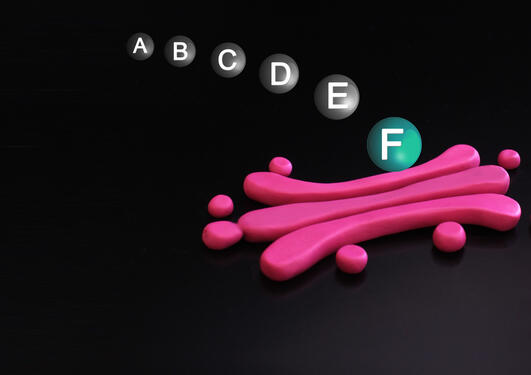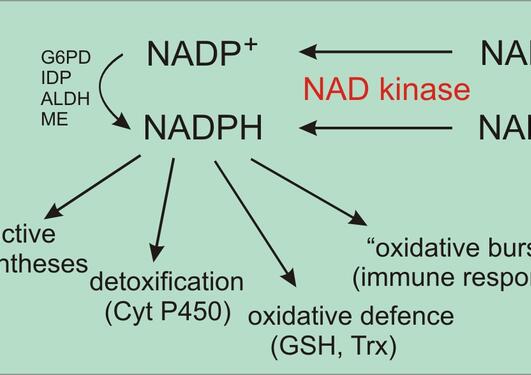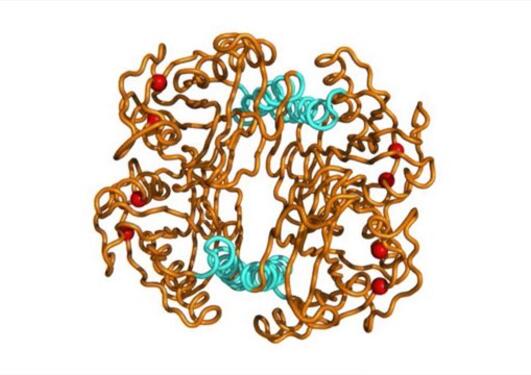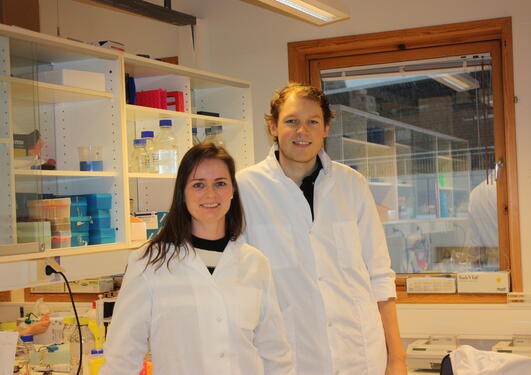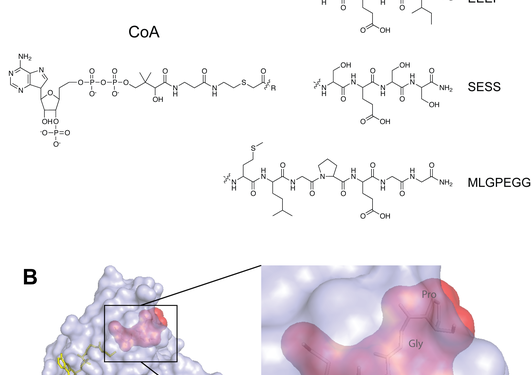News archive for ProtMetD: Protein Modifications, Metabolism and Disease
In human cells, N-terminal acetylation is among the most common protein modifications. Now, researchers at the University of Pennsylvania and the University of Bergen have revealed the structural and biochemical properties of the major molecular machine involved in this process. Cancer cells require this enzyme for survival and proliferation.
In recent years, several sporadic cases of NAA10 mutations have been identified in patients with varying degrees of developmental delays. In the curremt issue of Human Mutation, Svein Isungset Støve, Marina Blenski and Thomas Arnesen from the NAT-group at the Department of Molecular Biology in collaboration with geneticists from Germany, France, the Netherlands and the United States discovered... Read more
Drought is an increasing problem all over the world and the main reason for crop failure, thus there is a need to develop plants that are highly resistant to drought. We have found targeting of the NatA enzyme to be a way to develop highly drought resistant plants since NatA controls the stress imposed on plants by drought.
Hypertension or high blood pressure is a major health problem that can result in cardiovascular diseases including hypertensive crisis and stroke. A recent paper in Science by Hwang and Varshavsky shows that the molecular signaling underlying regulation of blood pressure involves N-terminal acetylation of specific proteins and their consecutive degradation by the N-end rule pathway.
UiB researchers have developed a “GPS system” to find protein-positions in cells. The method was used to reveal a special localization the newest member of an enzyme family with important tasks in the human body. This new enzyme knowledge may be useful in medicine and the cellular "GPS system" could become a useful tool in both basic biological and biotechnological research.
This week, researchers Nick Love, Nadine Pollak, Christian Dölle and Marc Niere from the Ziegler group report their discovery that the final step in the conversion of vitamin B3 to a molecule called NADP is critical for the embryonic development of animals.
Researchers at UiB have contributed to the cracking of the code for altering the shape of proteins. The new knowledge can become useful in both biotechnology and medicine.
This week, Line Merethe Myklebust, Svein Isungset Støve and colleagues in the Arnesen and Reuter groups of the Protein modifications, Metabolism and Disease (ProtMetD) research programme at MBI, presented novel findings on the Ogden syndrome in Human Molecular Genetics.
- February 2020 (1)
- May 2016 (1)
- December 2015 (1)
- July 2015 (1)
- June 2015 (1)
- March 2015 (1)
- January 2015 (1)
- December 2014 (2)
- November 2014 (2)
